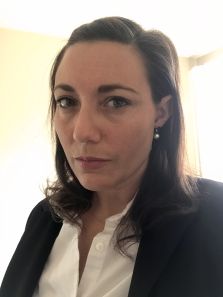
Kierstin Brehm
Ph.D. Candidate in German
April 2021
Tell me about your job.
I had an internship with an organization called California Humanities. They are a regranting institution that takes grant dollars and distributes it to people doing humanities work. They help fund documentaries, for example.
I was working for one of the programs they have with California public libraries. The libraries do a lot of work welcoming new community members to the state, such as outreach to immigrant and underserved populations. In partnering with California Humanities, they came up with Library Innovation Lab, a grant program that trains directors in how to identify these communities, find out what kinds of projects they’re interested in, and come up with programming that will engage them.
They wanted to analyze the data to see how well this program was working. But they also wanted a different way to present the story of this program. My job as their fellow was to take the Library Innovation Lab and develop an infographic out of that data.
Can you describe your PhD research?
I am in the German studies program and am moving into my 7th year. I’m studying representations of national identity in popular music in the early postwar period in Germany, directly after the war as Germany is rebuilding itself.
How did your fellowship give you skills to better your PhD work?
I needed to filter a lot of information and organize it. You really have to break things down into small parts. So in that case it really made me step through the project and focus on which elements I wanted to select and highlight. I could definitely use some of that in my own work.
I enjoy thinking visually, too, so it helped me think about my research in a more visual manner. Later, if I want to present my research, I realized creating specialized imagery could be really helpful in getting my messaging across.
Now the reverse: How did your PhD research help you with the fellowship?
A lot of what I practiced was being able to parse and synthesize information. I have to read through a bunch of documents and figure out the main idea.
Also just knowing who to ask when you get stuck was a useful lesson. To be able to ask for feedback and be able to create a better version of your project is something we practice in graduate schools.
What advice would you offer readers?
Apply to be a Humanities Out There fellow! It helps with professionalization and it can help you see where your skills are useful in a practical sense. I still think of myself as a student, but in grad school, you're sort of an apprentice between student and professional. Taking this kind of internship or fellowship allows you to work on something that's not going to have a grade at the end — it's the finished product that you produce. Being able to produce something concreted, not just for a grade, is really empowering.
